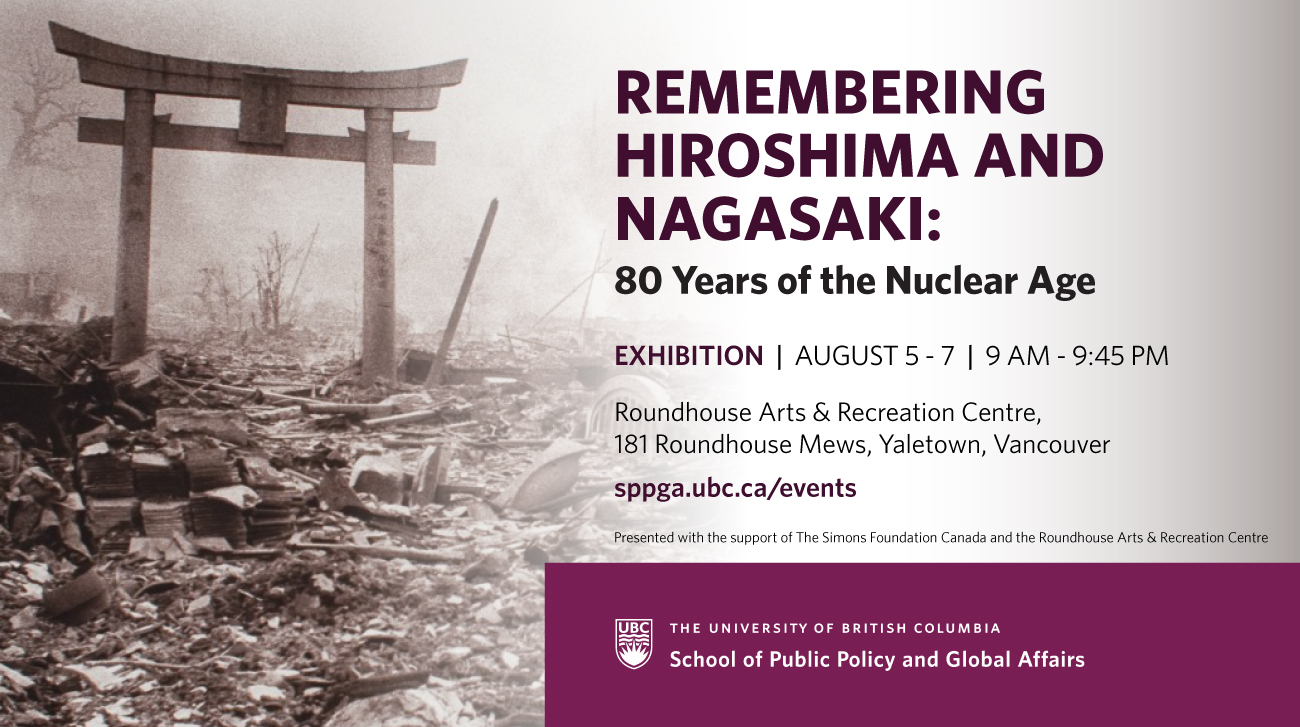The More Who Die, the Less We Care: Confronting the Deadly Arithmetic of Compassion, with Paul Slovic
*Note: This event was streamed live on the School of Public Policy and Global Affairs Facebook page, which can be viewed here.
Join us for this talk and Q&A with special guest, Paul Slovic, on how publics respond or not to humanitarian crises. This talk is part of The Decision Making for Humanitarian Crises (DMHC), an initiative of the School of Public Policy and Global Affairs. The DMHC initiative aims to develop the School of Public Policy and Global Affairs’ mandate to advance global governance and security. Led by Professors Brian Job and Robin Gregory, the goal of the DMHC is to create an interdisciplinary community of research and teaching, bringing together UBC faculty and students and, importantly, also reaching beyond campus to engage government, NGO, and civil society. Introductory remarks will be provided by Professors Brian Job and Robin Gregory.
Friday, September 28th
3:30 pm – 5:00 pm
C.K. Choi Building – Room 120
Refreshments provided
Failure to understand how our minds become insensitive to catastrophic losses of human life and environmental degradation and failure to act on this knowledge condemns us to passively accept genocide and mass abuses of innocent people as well as great risk from nuclear weapons. It may also increase the likelihood that we will fail to take appropriate actions to reduce the damages from other catastrophic events associated with poverty, disease, natural disasters, and climate change. Engage with us in this discussion with guest, Paul Slovic.
  |
Bio: Paul Slovic received his B.A. degree from Stanford University, and his M.A. and Ph.D. degrees in psychology from the University of Michigan. In 1978, Dr. Slovic founded the research institute Decision Research with Sarah Lichtenstein and Baruch Fischhoff, where he currently serves as President. He has been a professor of psychology at the University of Oregon since 1986. He and his colleagues worldwide have developed methods to describe risk perceptions and measure their impacts on individuals, industry, and society. His most recent work examines “psychic numbing” and the failure to respond to mass human tragedies.
Dr. Slovic is a past President of the Society for Risk Analysis and in 1991 received its Distinguished Contribution Award. In 1993 he received the Distinguished Scientific Contribution Award from the American Psychological Association. In 1995 he received the Outstanding Contribution to Science Award from the Oregon Academy of Science. He has received honorary doctorates from the Stockholm School of Economics (1996) and the University of East Anglia (2005). Dr. Slovic was elected to the American Academy of Arts and Sciences in 2015 and the National Academy of Sciences in 2016.
Co-Hosted by: The Decision Making for Humanitarian Crises (DMHC), an initiative of the School of Public Policy and Global Affairs, UBC Psychology, and the Institute for Resources, Environment and Sustainability.
  |
  |
  |

